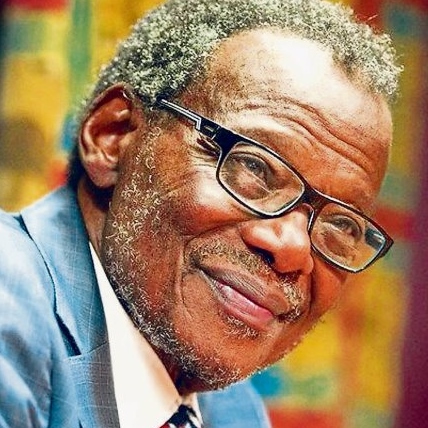click to dowload our latest edition
CLICK HERE TO SUBSCRIBE TO OUR NEWSLETTER


Published
5 years agoon
By
adminTALI FEINBERG
“This is the most contested election South Africa has faced. There are 48 options on the ballot paper. But only one option is right for South Africa. The IFP understands that our nation’s future is indivisible. There will be no justice for one community while another still suffers. We either swim together, or sink together,” he says.
As he pointed out at the Jewish community’s celebration of his 90th birthday last year, he has a long history with Jews in South Africa. When he was a student at the University of Fort Hare, he became a member of the National Union of South African Students. “A number of our leaders were Jewish. As I became more and more involved in the liberation struggle, I met and befriended many more Jewish leaders who were working toward the same goals of political franchise, equality, and social justice in South Africa.
“I was impressed by their sense of patriotism and responsibility. The cause of justice and freedom was so naturally their own cause, even when this was not their fight. Duty, faith, and the knowledge of truth led them to make it their fight.”
His Jewish compatriots included Helen Suzman and her husband, Dr Mosie Suzman, “who opened the doors of their home to us when we were in Johannesburg during those [apartheid] days. So did Clive and Irene Menell.” He was also close to Professor Phillip Tobias.
“Arnold Zulman and his beautiful wife, Rosemary, have nurtured our friendship for the past 50 years of my life. We went to shul with them, and attended their children’s Barmitzvahs. Mr Zulman sometimes received calls from anonymous white voices in the dead of the night saying, ‘We know that you have Buthelezi in your home.’ He was unfazed by this kind of intimidation.
“The simple fact is that most of the white South Africans who were at the forefront of our liberation struggle were Jewish. All the white South Africans who were arrested with Nelson Mandela were Jews,” he says. “Maybe the fact that the Jewish people have endured persecution for centuries made them the kind of compassionate people that most of them are.”
Buthelezi says he disagrees with the decision taken by the African National Congress to downgrade South Africa’s Embassy in Israel. “It is short-sighted and regressive. Moreover, it stands in opposition to our country’s role as a mediator for peace.”
He has visited Israel a number of times and formed close bonds with its leaders, from Shimon Peres to Ariel Sharon to Benjamin Netanyahu. “So, when people denigrate me for supporting Israel, I pity their ignorance. As far as my politics is concerned, I have always supported a two-state solution. I made this clear again in September 2015 when I visited Israel at the kind invitation of the South African Friends of Israel, together with several senior political leaders,” he says.
“It is counter-productive for South Africa to escalate tensions by taking sides. Having experienced our own history, we must surely be champions of dialogue and negotiation. We should be encouraging both sides to continue in dialogue so that a two-state solution can become a reality.
“We saw here in our own country that intractable problems could not be resolved with violence and armed conflict.”
Buthelezi says he is proud to tell the truth about Israel and his friendship with the Jewish community. “Israel is the only country in the Middle East that allows freedom of religion, freedom of expression, press freedom, and gender equality.
Rather than cutting ties, South Africa needs to engage with Israel, he says. “The best way to learn is to engage. When we engage, meaningful change becomes possible. The biggest test of true leadership is being able to do or say a difficult thing, as long as it is the right thing to do or say. To be out of step with a battalion is the greatest test of leadership.”
Even in the midst of social crises, he believes education must continue. “Education must be prioritised. No matter what the political circumstances, whether we are fighting for freedom, or fighting for a democracy that overcomes inequality, education remains at the heart of our fight.
“Let us teach our children the truth. Let us speak to the next generation. Let us equip them to look beyond hashtags and populist slogans, beyond propaganda, and reductionist arguments. Let us give them a solid foundation by teaching them what has come before. And then, let us support them as they begin to build the future,” he says.
Buthelezi will be stepping down as party leader after the elections. “I will continue as president of the IFP until our national elective conference, where a new leadership will be elected. Our structures have unanimously nominated Secretary General Mayor Velenkosini Hlabisa to stand for election. I myself will not stand.”
Buthelezi is grieving the loss of his beloved wife, Princess Irene, who passed away in March after a long illness. After the elections, he intends to spend time with his grandchildren and stay involved in serving the country in one way or another. “I have done this for more than 60 years. It is part of who I am.”
